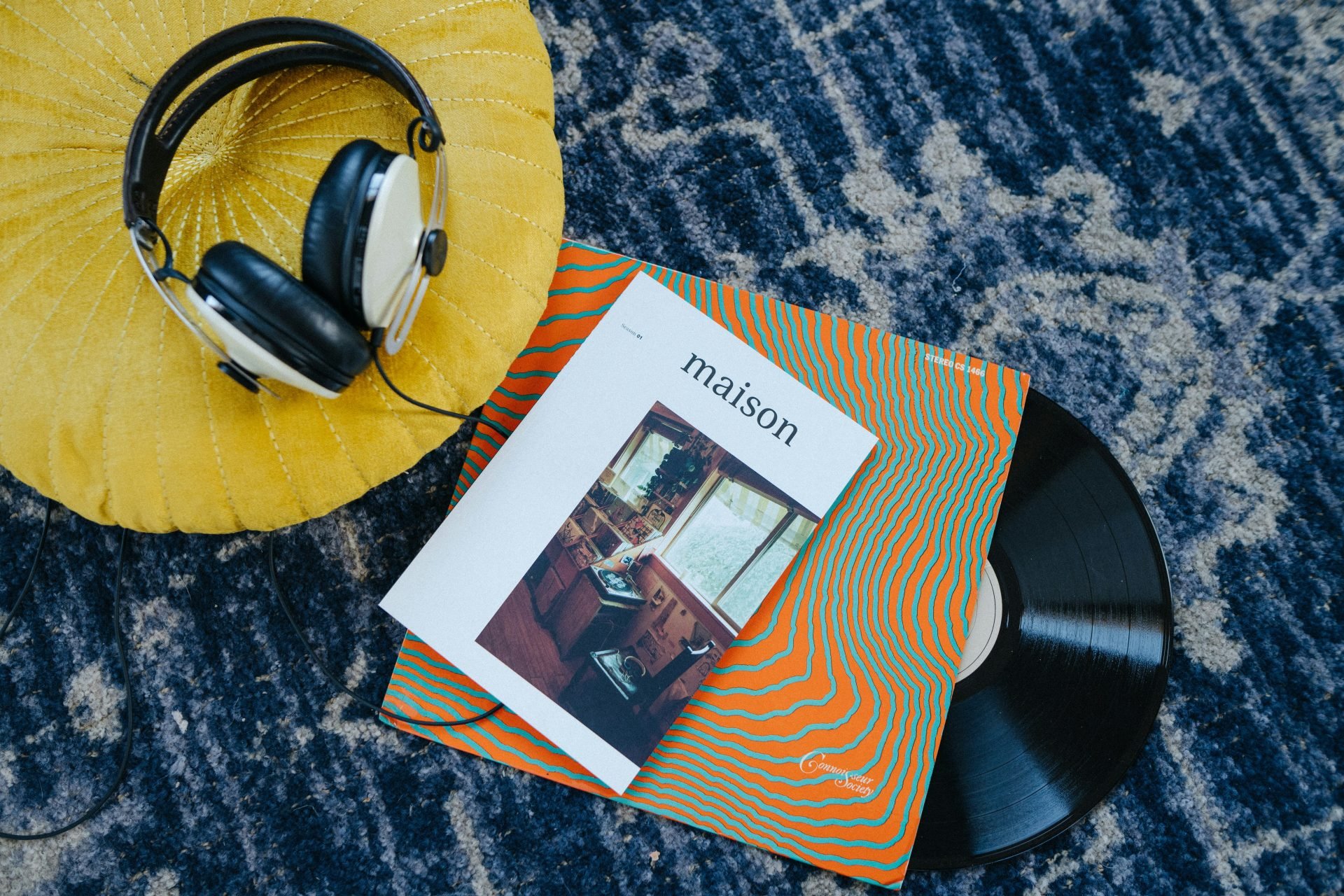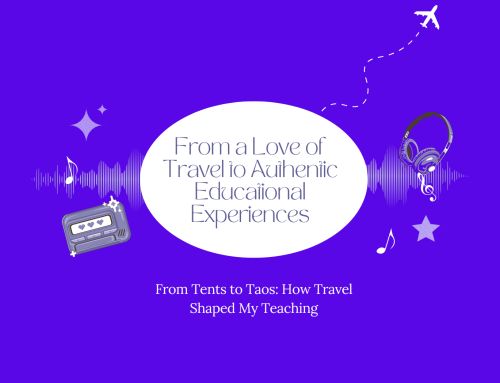Table of Contents
Introduction: The New Paradigm of Music Education
The educational world has become a complete whirlwind where music educators are breaking free from the confines of traditional classrooms. Gone are the days when teaching was all about chalkboards, sheet music, and the occasional out-of-tune piano. Now, with digital platforms popping up like mushrooms after a rainstorm and entrepreneurial skills becoming the secret sauce to success, there’s a new challenge on our plate. We’re not just teaching students how to hit the right notes anymore; we’re helping them hit the right notes and cash in on them. Let’s face it, the art world is a tough gig. Talent alone doesn’t pay the bills. That’s why integrating a bit of business savvy into our music education isn’t just a nice-to-have; it’s a must-have. If we want our students to thrive in this fast-paced arts environment, we need to arm them with more than just musical chops. They need to know how to turn those chops into dollars. As educators, it’s our job to help them navigate the complex terrain to not only master their craft but also turn their passions into something that can actually pay rent.
The Importance of Monetizing Music Education Curricula
Traditionally, music educators have been the champions of nurturing artistic talent, sparking creativity, and making sure students fall head over heels for the art form. We’ve been the maestros of scales, harmonies, and the occasional dramatic crescendo. But let’s be real—these days, that’s just the beginning of what our jobs entail. In the current workplace, being a music educator means also playing the role of a career coach, financial advisor, and sometimes even a social media guru. The gig economy, genre-blending, and the endless scroll of social media have changed the game (Nytch, 2020). We’re no longer just teaching students how to make beautiful music; we’re also teaching them how to make a living off it. That’s why it’s so crucial for us to help them learn how to capitalize on every opportunity that comes their way—whether it’s launching a YouTube channel, maximizing income from stream revenue-generating platforms, or snagging joint venture opportunities with non-music-based companies (Susanni, 2019).
Monetizing music education isn’t just about keeping our programs afloat (though, hey, that’s important, too); it’s about empowering our students to turn their passions into something sustainable. Weaving entrepreneurial principles into our teaching will offer students a well-rounded education that’s as much about real-world survival as it is about artistic expression (Haynes & Marshall, 2018; Kamara II, 2018; Wall-Andrews, 2022). We’re no longer just instructors of music theory and performance—we’re the facilitators of both artistic genius and financial savvy. It’s our job to help students not just hit the high notes, but also figure out how to get paid for them.

Practical Approaches to Monetization
Alright, so now that we’ve talked about why it’s essential to blend a bit of business into our music education magic, let’s get into the nitty-gritty—how do we actually do it? Fortunately, there are plenty of ways to turn your musical expertise into cold, hard cash, and no, it doesn’t involve busking on a street corner (unless that’s your thing, of course). Here are some practical strategies to help you monetize your curriculum and maybe even boost your rep along the way:
Online Courses and Workshops
Welcome to the digital age, where the world is your classroom, and students can tune in from anywhere with Wi-Fi. By diligently creating online courses and workshops, you can extend your reach far beyond the four walls of your school. Platforms like Udemy, Coursera, or even your own snazzy website let you package your knowledge and sell it to a global audience. This doesn’t just bring in some extra cash; it also turns you into a go-to expert in your field. And let’s be honest—who doesn’t want to be the next big thing in online music education?
Social Media and Content Creation
Social media isn’t just for selfies and cat videos—it’s a goldmine for educators looking to monetize their content. Platforms like YouTube, Instagram, and TikTok offer more than just a stage to share your brilliance; they offer opportunities for ad revenue, sponsorships, and brand partnerships. Strategically creating content that clicks with your audience, you can build a following and turn those likes and shares into dollars. Plus, it’s a great way to showcase your teaching style, attract new students, and maybe even go viral (in a good way).
Collaborations and Partnerships
Two heads are better than one, especially when those heads can bring in some extra income. Empathetically collaborating with other educators, institutions, or brands, you can open up new revenue streams. Partnering with music software companies or instrument manufacturers, for example, might lead to sponsored workshops or product endorsements. Or, team up with local businesses to offer community music programs—funded by your new partners, of course—which keeps costs low for students and profits high for you.
Licensing and Publishing
Got some original compositions or killer arrangements? Don’t just let them gather dust—license them! You can monetize your work by licensing it for use in various media or by publishing your instructional materials through educational publishers. Not only does this give you an additional income stream, but it also lets you contribute to the wider music education community. It’s a win-win—you get paid, and other educators get to benefit from your creativity.
These are just a few ways to start turning your musical know-how into financial success. The key is to think creatively, be open to new opportunities, and never underestimate the value of what you bring to the table. After all, you’re not just teaching music—you’re teaching students how to make a living from it, and that’s a lesson that’ll stick with them for life.

A Gradational Model for Achieving Monetization
To guide music educators in monetizing their curricula, I propose a gradational model that can be adapted to various contexts and levels of experience:
- Foundational Level: Building the Brand
- Objective: Establish a clear and authentic online presence.
- Action Steps: Create a professional website, develop a social media strategy, and begin producing content that showcases your expertise.
- Outcome: A growing online presence that attracts potential students and partners.
- Intermediate Level: Diversifying Income Streams
-
- Objective: Expand revenue sources by offering a range of products and services.
- Action Steps: Develop online courses, seek out collaborations, and explore licensing opportunities for your educational materials.
- Outcome: Multiple income streams that provide financial stability and growth.
- Advanced Level: Scaling and Sustaining
-
- Objective: Scale your efforts to reach a larger audience and sustain your program over the long term.
- Action Steps: Invest in marketing, optimize your content for maximum reach, and seek out high-profile partnerships or sponsorships.
- Outcome: A well-established, monetized curriculum that continues to generate income and impact.
The Urgency of Embracing Entrepreneurial Music Education
As we ride the waves of the 21st century, it’s more critical than ever for music educators to embrace an entrepreneurial mindset. The days of focusing solely on artistic development are behind us; today’s musicians need more than just talent—they need to be equipped with the skills to market themselves, manage their careers, and handle their finances. It’s not just about surviving in this new world; it’s about thriving. The urgency here is real. With arts programs facing tighter budgets and the constant challenge of staying relevant, we have to rethink our approach. Weaving monetization strategies into our curriculum doesn’t just secure the future of our programs—it can empower our students to take the reins of their own careers. We need to recognize that when the arts meet entrepreneurial savvy, the results can be both culturally enriching and financially rewarding. The integration of business know-how into music education isn’t just a passing trend; it’s an absolute necessity. Our responsibility as educators is to prepare our students for a world that demands not only artistic brilliance but also financial literacy.
References
Nytch, J. (2020). The many facets of music entrepreneurship education. Journal of Arts Entrepreneurship Education.
Susanni, P. G. (2019). Fostering entrepreneurship for music education: How to design effective curricula.
Wall-Andrews, C. (2022). Meta-analysis on the importance of entrepreneurship in Canada’s music industry. Artivate.
Kamara II, K. (2018). Music artists’ strategies to generate revenue through technology.
Haynes, J., & Marshall, L. (2018). Beats and tweets: Social media in the careers of independent musicians. New Media & Society.
Photo via unsplash
Photo via unsplash
About the Authors
The 2024 Grand Prize® Winner & 10-time Global Genius® Award Winner, four-time Latin GRAMMY® Award Winner and three-time Latin GRAMMY® Award Nominee, EMMY® Award Winner, 55-time DownBeat® Music Award Winner (record holder), and 33-time Global Music® Award Winner (record holder), Dr. José Valentino Ruiz maintains a vibrant career as an internationally touring cross-genre performing and recording artist (flutist, saxophonist, and bassist), has performed 1400+ concerts as Headliner in numerous festivals, performing arts centers (including twice at Carnegie Hall), and conferences on six continents (North and South America, Africa, Europe, Asia, & Australia); led 40+ non-profit mission trips; delivered 110+ keynotes, concerts, workshops in academic sectors; consulted numerous Fortune 500 companies; produced 150+ albums and 10 documentaries; and published 80+ peer-reviewed research articles. His innovative contributions and company have significantly impacted the music industry, generating substantial value and recognition.
Dr. José Valentino Ruiz holds pivotal roles as Founder & CEO at JV Music Enterprises; Music Producer at Hayden5; and Global Director of Entrepreneurial Initiatives at the Global Institute for Music Research.
 Cienna Alida, M.P.H., is a versatile and acclaimed vocalist from Boston, Massachusetts, renowned for her soulful voice and dynamic stage presence. As the front woman vocalist for the premier R&B/jazz band José Valentino & Cienna Alida featuring The Eternal Power, she has captivated audiences on prestigious stages. Honored as Tampa’s best vocalist in 2024, Cienna’s powerful performances have graced festivals and high-profile events, including National Anthem renditions for Tampa Bay Buccaneers games. Her commitment to using music for healing is evident in her work with Arts in Medicine at the University of Florida, and her influence is further amplified by media features and radio broadcasts. Drawing inspiration from legendary artists like Whitney Houston, Jazmine Sullivan, and Aretha Franklin, Cienna’s mission is to inspire, uplift, and connect with listeners through the transformative power of music.
Cienna Alida, M.P.H., is a versatile and acclaimed vocalist from Boston, Massachusetts, renowned for her soulful voice and dynamic stage presence. As the front woman vocalist for the premier R&B/jazz band José Valentino & Cienna Alida featuring The Eternal Power, she has captivated audiences on prestigious stages. Honored as Tampa’s best vocalist in 2024, Cienna’s powerful performances have graced festivals and high-profile events, including National Anthem renditions for Tampa Bay Buccaneers games. Her commitment to using music for healing is evident in her work with Arts in Medicine at the University of Florida, and her influence is further amplified by media features and radio broadcasts. Drawing inspiration from legendary artists like Whitney Houston, Jazmine Sullivan, and Aretha Franklin, Cienna’s mission is to inspire, uplift, and connect with listeners through the transformative power of music.




Leave A Comment